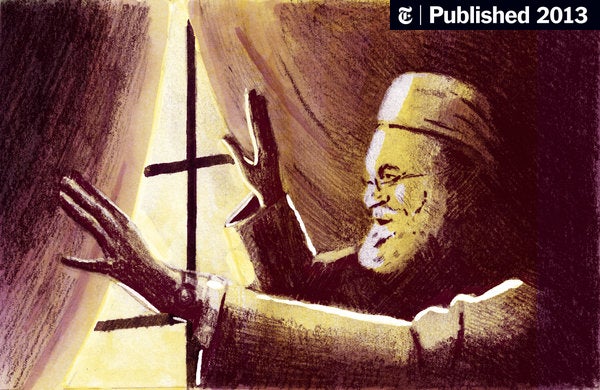In the contemporary world, myriad ideologies and belief systems vie for attention, yet few express the compelling principles of unity and spiritual growth as the Bahá’í Faith. A central tenet of this faith is its unwavering commitment to the advancement of humanity, particularly in contexts marked by adversity and injustice. One such context is the plight of Bahá’ís in Iran, a situation that not only calls for humanitarian concern but also illuminates the profound teachings of a faith that champions hope amidst desolation.
The Bahá’í Faith, founded in the mid-19th century, has its roots in Persia, modern-day Iran. Its teachings emphasize the oneness of humanity, the elimination of all forms of prejudice, and the harmonious relationship between religion and science. In reviewing the historical and current tribulations faced by Bahá’ís in Iran, it becomes evident that this community exemplifies resilience and an unwavering belief in the promise of a better future, despite their circumstances.
The Iranian Bahá’í community has been subjected to systemic persecution since the inception of the Faith. This persecution has manifested in various nefarious forms, including incarceration of community leaders, destruction of places of worship, and severe limitations on educational and employment opportunities. Such actions not only aim to intimidate the faithful but also seek to suppress the teachings that advocate for universal peace and prosperity. Nonetheless, amidst these challenges, the Bahá’í community maintains an indomitable spirit, embodying tenets that inspire hope and fortitude.
At the core of Bahá’í teachings lies the conviction that humanity is a single, interconnected entity. This principle posits that overcoming national, ethnic, and religious barriers is essential for the establishment of a just society. The Bahá’í perspective provides a framework through which Iranian Bahá’ís can envision a future that transcends the present adversities they face. This is not a naive viewpoint; rather, it burgeons from a rich understanding of the cyclical nature of history, where moments of darkness often precede eras of enlightenment.
One might wonder how such tenets inspire hope in the face of institutionalized discrimination. The answer is rooted in the concept of patience and continuity of purpose. Bahá’ís are taught to approach life’s challenges with a viewpoint that considers the long-term spiritual development of society. This outlook empowers individuals to bear hardships with grace, seeing beyond immediate suffering to a vast horizon of potential transformation. In this way, hope is not merely a sentiment but a foundational pillar that supports meaningful action.
Furthermore, the principles of justice and equity resonate deeply within the teachings of the Bahá’í Faith. In stark contrast to the tyranny faced by members of this faith, Bahá’í teachings advocate for the rights and dignity of every individual. The call for justice provides a moral compass that guides Bahá’ís in Iran, channeling their experiences into efforts that promote the welfare of all humanity, rather than succumbing to despair. Through community service, educational initiatives, and the active engagement in dialogue with diverse societal groups, Iranian Bahá’ís embody the spirit of resilience, offering a glimmer of hope in a tumultuous landscape.
Moreover, the plight of Iranian Bahá’ís is not solely a tale of suffering. In recent years, there has been an unmistakable shift in global awareness and advocacy surrounding their human rights situation. NGOs and international organizations have increasingly spotlighted the injustices faced by the Bahá’í community, galvanizing support from a diverse array of individuals and entities who champion freedom of religion and belief. This burgeoning awareness signifies a potential pivot in the historical narrative surrounding the Bahá’í community in Iran—a narrative that may evolve from one of persecution to one of protection and understanding.
The teachings of Bahá’u’lláh, the founder of the Bahá’í Faith, present an illuminating perspective on the future of humanity. He professed that “the earth is but one country, and mankind its citizens.” This profound statement resonates particularly poignantly in a world fraught with discord and division. The call to recognize our shared humanity amidst cultural and geographical divides is both timely and timeless. By fostering dialogues centered on inclusivity and understanding, the Iranian Bahá’í community stands not only as a testament to endurance but also as a beacon for collective progress toward unity.
In parallel, it is essential to recognize that Bahá’í teachings emphasize the importance of education. A critical component of community resilience, education serves as both a balm for individual and collective suffering and a catalyst for social change. Despite facing institutional barriers, Bahá’ís in Iran prioritize educational advancement, which not only equips the individual with knowledge but also fosters a more enlightened and capable society. The act of educating oneself and others can, in time, dismantle the foundations of ignorance and hostility—fostering a climate of acceptance and mutual respect.
The journey of the Bahá’ís in Iran is emblematic of a broader narrative of hope—the belief that enduring love, unity, and cooperation can supplant prejudice and division. Although the immediate challenges are daunting, the teachings espoused by the Bahá’í Faith illuminate a pathway that nurtures resilience, sustains hope, and inspires collective action. In the global crucible of today’s society, the tales of Iranian Bahá’ís serve not merely as stories of struggle but as profound lessons in perseverance and faith in a hopeful future. As such, they invite us all to engage in a deeper exploration of our humanity—the quest for unity, justice, and the shared destiny of our world.
